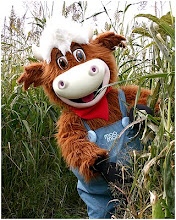
Karakul sheep originated in Asiatic Russia and came over to the United States around the 1900s. Male Karakuls (rams) grow horns but the females (ewes) do not. They are generally used for the fat they store (to make candles and such) and for their wool.
The Karakul is characterized by its broad tail which stores excess fat. Most breeds of sheep store this fat throughout their entire body, making the Karakul different from any other breed. They are called “fat-tailed” sheep because the base is so wide and their tails can weigh up to 8 or 10 pounds.
Karakul sheep are born with a soft coat of wool that will mature into a layered coat. The newborn lambs have such beautiful, silky-soft curly black wool that it is coveted for Persian Lamb Skin. Perhaps you’ve seen pictures of Russian leaders with round curly black hats or 1940’s movie stars with black curly collared jackets. These are Persian Lambskin from Karakuls. As the sheep mature, the outer layer of wool becomes long and coarse and the inner layer stays very soft. Karakuls are generally black in color and grow to have long and silvery wool. Even after their wool turns silver, the sheep keep their black faces, Roman noses and adorable flop ears. These unique features create higher demand for the Karakul wool, which is used to make oriental rugs.
The breed is considered threatened, which means there are fewer than 5,000 left in the world!
Farmland is not alone in the effort to preserve this amazing breed of sheep. Several organizations world-wide are working to re-build the population of Karakuls. You can check out the American Karakul Sheep Registry and find more of these fascinating sheep right here in the U.S. You can also learn more about this breed’s conservation by visiting the American Livestock Breeds Conservatory website.



